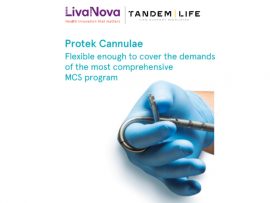Abstract BACKGROUND: Arterial hyperoxemia may cause end-organ damage secondary to the increased formation of free oxygen radicals. The clinical evidence on postoperative lung toxicity from arterial hyperoxemia during cardiopulmonary bypass..
Read MoreAbstract Background Veno-arterial Extracorporeal Membrane Oxygenation (VA-ECMO) is a rescue treatment in refractory cardiogenic shock (CS) or refractory cardiac arrest (CA). Exposure to hyperoxemia is common during VA-ECMO, and its..
Read MoreAbstract Hyperoxemia commonly occurs in clinical practice and is often left untreated. Many studies have shown increased mortality in patients with hyperoxemia, but data on neurological outcome in these patients..
Read MoreAbstract Excessive haemodilution and the resulting anaemia during CPB is accompanied by a decrease in the total arterial oxygen content, which may impair tissue oxygen delivery. Hyperoxic ventilation has been..
Read MoreAbstract Background Postoperative cognitive dysfunction (POCD) is a common complication of cardiac surgery. Studies have identified potentially injurious roles for cardiopulmonary bypass (CPB) and subsequent reperfusion injury. Cognitive dysfunction has..
Read MoreAbstract The medical use of oxygen has been widely and frequently proposed for patients, especially those under critical care; however, its benefit and drawbacks remain controversial for certain conditions. The..
Read More






